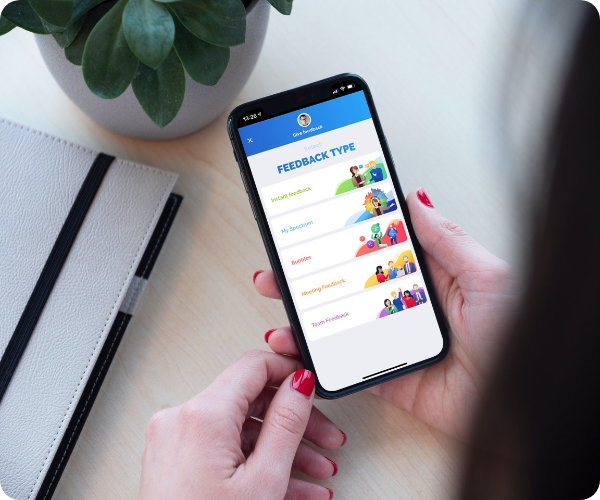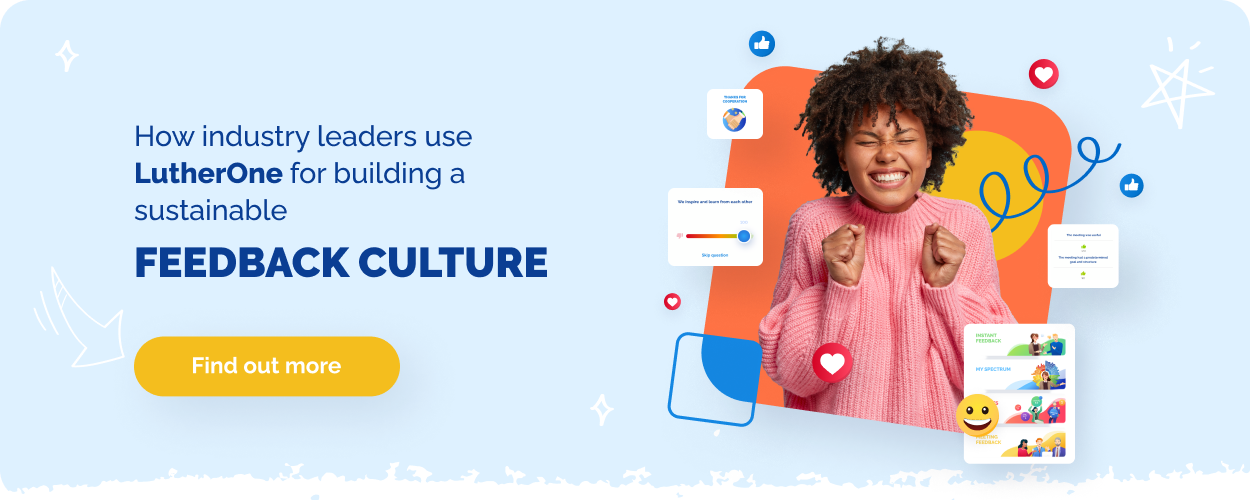FEEDBACK
The Advantages Of Giving Feedback Continuously Rather Than As Part Of An Annual Review Only

Do you only give feedback in the context of major annual evaluations? We'll try to convince you it might be time to try something else.
Argument one: feedback leads to better performance and engagement
A whole 92% of employees agree with this statement. Several studies also objectively prove this fact.
So, if your people do something that needs to be changed in April, for example, why wait until the end of the year? They could have been more effective and efficient for most of the year by now.
In addition, feedback should be specific and in context to be effective. How meaningful will a discussion be about the realities of a given situation that you all barely remember anymore? How clear can you be several months out?
Moreover, a year is a long time, and it may well be that by the end of the year, you will be facing wholly new and different challenges, and feedback on what one did many months ago is already of little relevance.
Argument two: feedback leads to growth
By giving feedback on what is going well and should be continued by the other person, and where we need to do something differently or better, we contribute to the learning and growth of our people.
So, if we give feedback only at the end of the year, we have lost a lot of time when our people could have been practicing new skills, discovering different approaches, and learning new competencies.
Development can be challenging and require more time. Moreover, sometimes just one piece of feedback is not enough. Some things need to be repeated, experienced, and accepted gradually. Only then will they become internalized, and people will use them naturally and automatically. So, the sooner you start, the sooner you will see the result.
Argument three: feedback is only as effective as how well it is given
For feedback to be effective, you need to be able to give it well. Otherwise, there is a risk that the other party will not accept it.
For example, one factor that hinders acceptance is too much formality. And if there is one thing typical of annual evaluations as opposed to continuous feedback, it is its formality and a less personal form.
It doesn't even contribute to adoption if you tell your people to do something differently, even though it's been fine up until now. No doubt they will wonder why now, suddenly, it's wrong when they've been doing it that way for months, and it's never been a problem.
Also, unlike continuous feedback, you usually have a nice horde of topics already collected in the annual review. And absorbing them all at once can already be a big mouthful. That kind of feedback will choke you as surely as if you stuffed a whole pie into your mouth, whether it's good or not.
To sum it up, if you give your people feedback continuously and don't wait until the end of the year, they'll take it better, and their performance will grow. That's not bad, right?
Never miss a LutherOne article or e-Book: SUBSCRIBE
Ready to step-up your performance management game too? Reach out today for a free demo.


